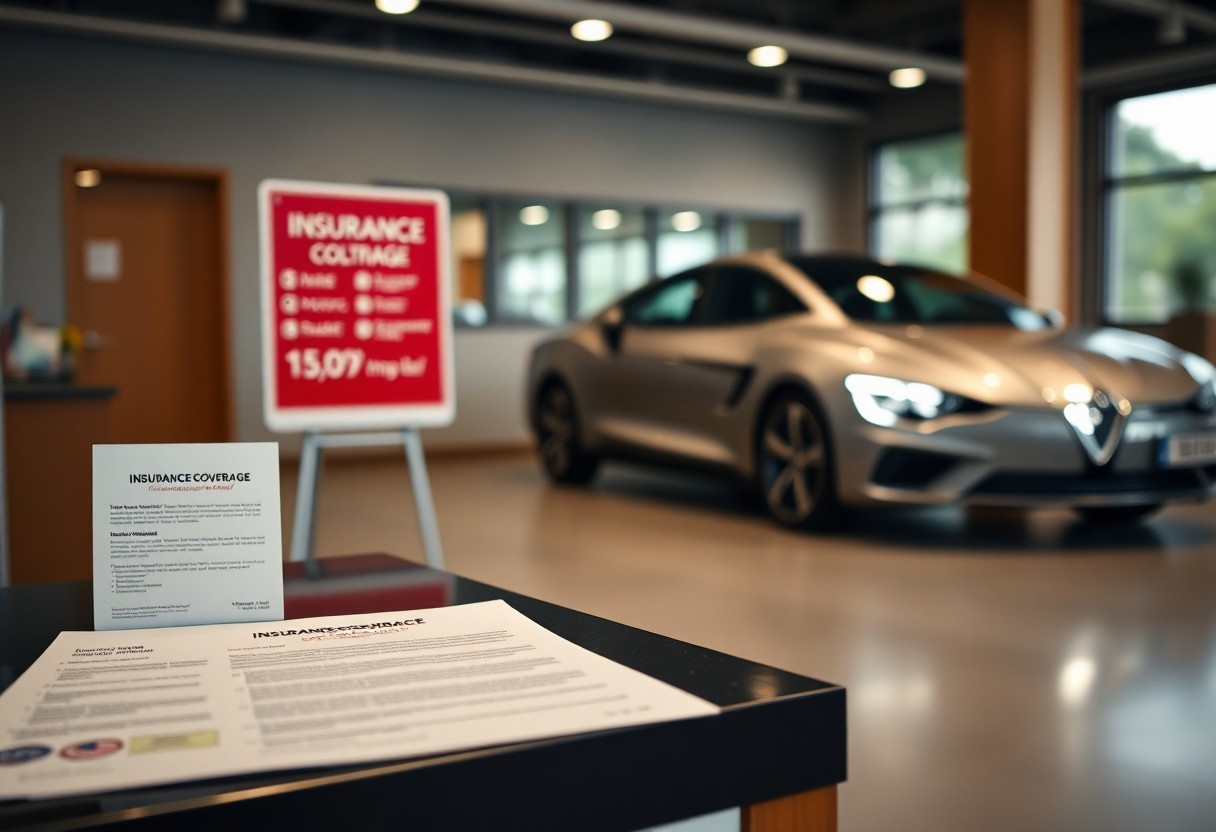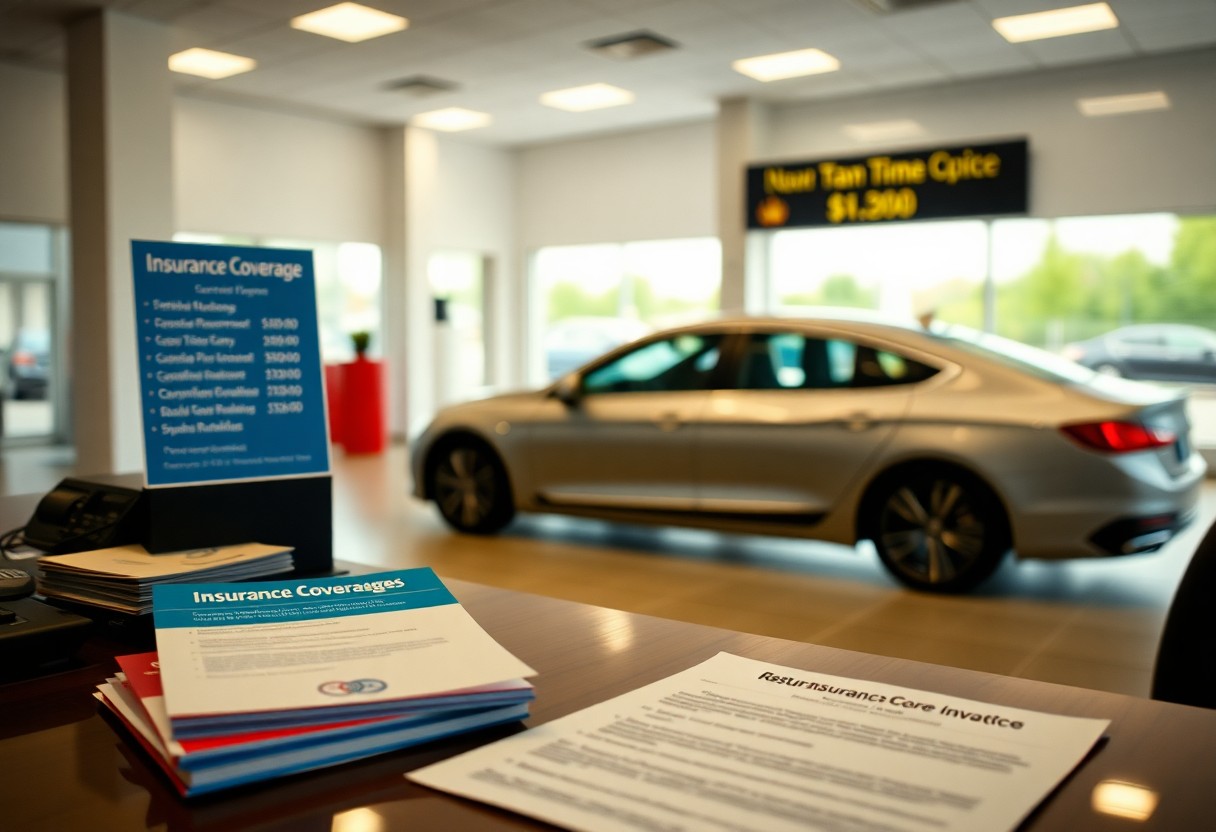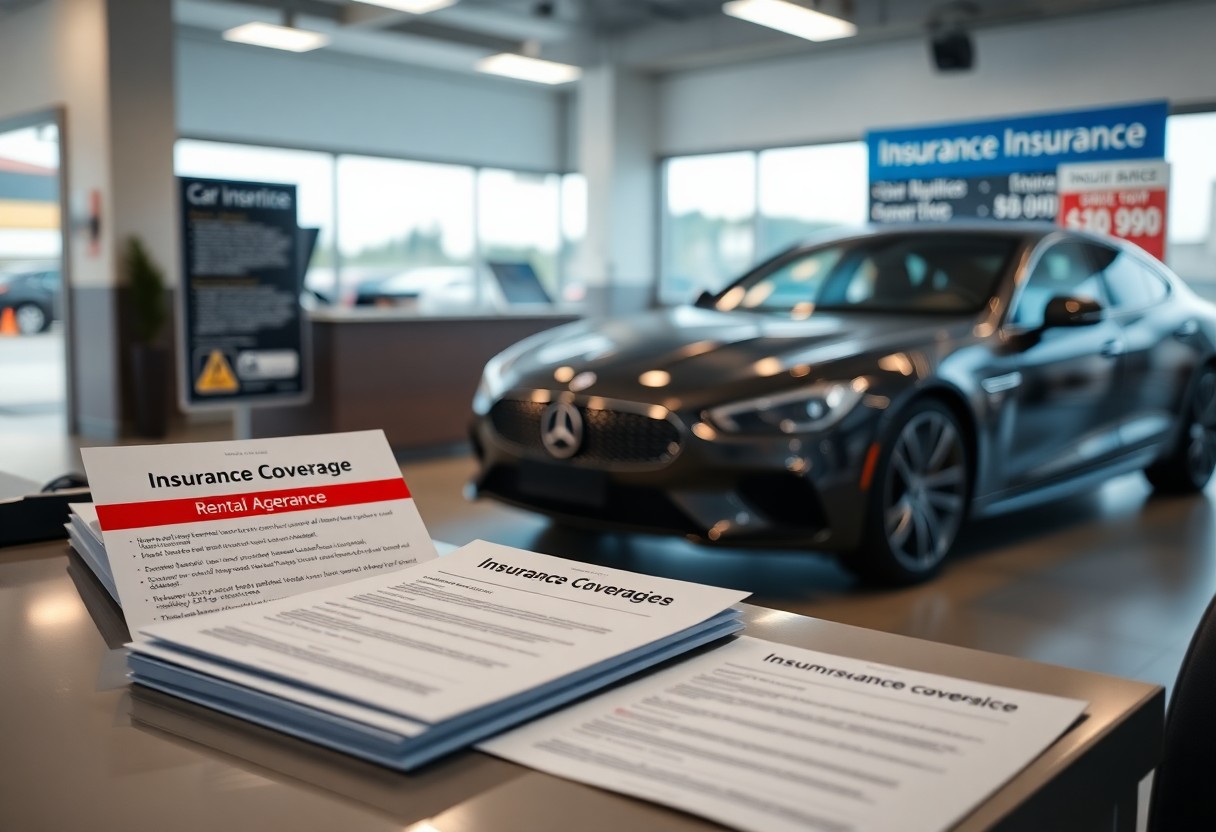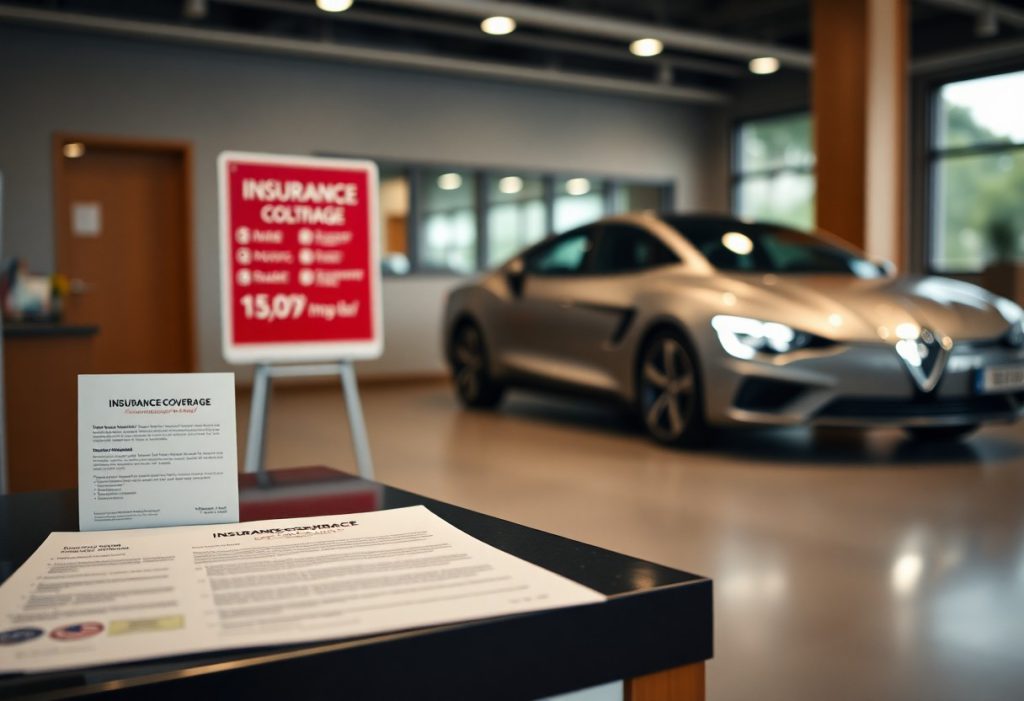Grasping the intricacies of rental car insurance is essential before finalizing your next vehicle rental agreement. Many assume their personal auto insurance extends fully to rental vehicles, but often it falls short, leaving you vulnerable to significant financial liabilities. Various insurance options cater to different protection needs, including collision damage waivers, liability coverage, and personal accident insurance. Without the proper coverage, you may find yourself facing exorbitant repair bills or medical expenses in the event of an accident. This detailed guide is designed to help you choose the right insurance coverage for your rental car, ensuring you secure the necessary protection tailored to your financial situation.
Here’s the formatted content based on your requirements:
Explore Essential Insurance Types for Your Rental Car
For a hassle-free rental experience, it’s vital to familiarize yourself with the various types of car insurance coverage available. Key options include collision damage waiver, liability protection, and personal accident insurance. Selecting the right coverage should be a personalized process based on your specific requirements and travel circumstances, enabling you to effectively mitigate potential risks associated with driving a rental vehicle.
| Insurance Type | Primary Purpose |
| CDW/LDW | Vehicle damage protection |
| Liability Insurance | Third-party damage coverage |
| Personal Accident | Medical expenses coverage |
| Personal Effects | Personal property protection |
| Roadside Assistance | Emergency support services |
Gain Insight into Collision Coverage Options
The collision damage waiver (CDW) is a critical component for protecting yourself against potential vehicle damage costs. This type of coverage can significantly reduce your financial liability to a minimal deductible or, in some cases, negate it altogether, depending on the policy specifics. With CDW, your rental car is shielded from theft, vandalism, and accident-related damages, ensuring you have peace of mind during your rental period. This protection is crucial to prevent unexpected financial hardships from unforeseen events.
Enhance Your Security with Third-Party Protection Plans
Once you’ve laid the groundwork with your basic coverage, enhancing your protection with third-party insurance can offer a substantial layer of security. This coverage typically addresses damages or injuries incurred to other vehicles, properties, or individuals, often providing liability coverage amounts reaching up to $1 million. Options for third-party protection include supplemental liability insurance (SLI) and extended protection (EP), which can effectively fill any gaps left by your personal auto insurance policy. In certain circumstances, this coverage can extend liability limits to as much as $2 million. Furthermore, it extends beyond just the rental vehicle, covering potential legal fees and medical costs for others involved in an accident.

Comprehensive Personal Protection Coverage Explained
Personal Protection Coverage encompasses a variety of insurance types designed to safeguard you and your belongings throughout your car rental experience. This holistic coverage includes provisions for medical expenses, accidental death benefits, and protection for personal items, making it an invaluable option for ensuring safety during your travels. By opting for this comprehensive coverage, you guarantee that both your health and property are adequately protected while on the road.
Discover the Benefits of Personal Accident Insurance
In addition to standard rental coverage, Personal Accident Insurance offers essential protection for both you and your passengers. This coverage typically addresses medical expenses up to $100,000 and provides accidental death benefits of up to $175,000. Generally available for an affordable rate of approximately $3-7 per rental day, this insurance ensures you have critical medical coverage during your travels. It is an important consideration for anyone prioritizing comprehensive safety while on the road.
Understanding the Importance of Personal Effects Coverage
To shield your belongings against theft or damage while traveling, Personal Effects Coverage is vital. This insurance typically covers personal items valued up to $500 per person, with a maximum of $1,500 per rental. Your electronics, luggage, and other valuables remain protected throughout your journey, providing you with peace of mind. Insurance providers often package Personal Effects Coverage with Personal Accident Insurance, creating a robust protection plan. Coverage extends to you, your family members, and authorized passengers, with claims needing to be submitted within 24 hours of any incident to ensure successful compensation.
Boost Your Protection with Specialized Services
In addition to standard insurance offerings, you can enhance your rental car protection through specialized services. These services deliver comprehensive protection for a variety of scenarios, ranging from roadside emergencies to personal belongings coverage, ensuring you experience complete peace of mind throughout your rental period. Such additional services can be invaluable in reducing stress and enhancing your travel experience.
Leverage Roadside Assistance Programs
Roadside assistance programs provide 24/7 emergency services, offering immediate assistance for common issues such as flat tires, dead batteries, or lockouts. Typically costing between $5 to $15 per rental day, these programs serve as a cost-effective solution to avoid high towing fees or service charges. Opting for this coverage guarantees that you won’t be left stranded, regardless of the issue you encounter during your rental period.
Navigate the RentalCover System for Enhanced Coverage
Unlike traditional insurance options, RentalCover offers a unique refund-based system. Initially, you pay for any damages incurred, and the company subsequently reimburses you within 3-5 business days after your claim receives approval. This system provides broader coverage compared to standard rental insurance, emphasizing a streamlined claims process. Your coverage typically includes protection against theft, vandalism, and accident-related damages, often at lower daily rates than those charged by rental counters, saving you 50% or more on protection costs. Additionally, you benefit from direct customer support throughout the claims process, ensuring a seamless experience.

Here’s the formatted content following your requirements:
Identify Key Factors Influencing Your Insurance Needs
Your individual rental car insurance requirements can significantly depend on factors such as your travel destination, the type of vehicle being rented, and the duration of your rental. Local traffic laws, road conditions, and your personal driving experience are crucial in determining the appropriate coverage level. Understanding these factors is essential as it guides you in selecting the right insurance tailored to your unique travel circumstances.
Recognize Critical Situations Requiring Insurance
Certain scenarios heighten the necessity of obtaining rental car insurance. For example, driving in foreign countries, renting high-end vehicles, or traversing areas known for high accident rates significantly amplifies your risk. Additional insurance coverage becomes essential when navigating unfamiliar regions or during adverse weather conditions, as these variables can greatly affect your overall safety and liability exposure.
Implement Effective Risk Assessment Strategies
Before making any insurance decisions, it is crucial to conduct a thorough evaluation of potential risks. Key factors to assess include your driving history, the value of the rental car, and local traffic patterns. Additionally, reviewing your current auto insurance policy for any coverage gaps is vital in determining your rental insurance needs. Effective risk assessment guidelines involve checking your personal insurance policy limits, understanding local driving regulations, and evaluating the weather conditions at your travel destination. It’s also wise to take into account accident statistics and crime rates in your rental area while considering your planned activities and driving distances, which can help inform the necessary coverage levels.
Comprehend the Cost Factors of Rental Insurance
To effectively manage your rental car insurance costs, it is essential to understand the pricing structure. Basic coverage typically ranges from $10-30 per day, while comprehensive packages can vary from $20-60 daily. The final price is influenced by factors such as the type of vehicle, the rental duration, and the rental location. By booking your insurance in advance, you could potentially save up to 30% on your total costs, making it a financially savvy approach.
Detailed Breakdown of Price Ranges for Coverage
Rental car insurance packages generally fall into distinct pricing categories: CDW/LDW typically costs around $15-25 per day, while liability insurance ranges from $10-15 daily, and personal accident insurance averages $5-7 per day. Additional services like roadside assistance usually add $5-10 to your daily rate, contributing to the overall cost of your rental experience and ensuring comprehensive coverage.
Assessing Value Among Your Insurance Options
When reviewing your insurance options, comprehensive coverage delivers the best value, especially for international travel. Your decision should seek to strike a balance between cost and the level of protection offered. Remember that accident-related expenses can easily exceed $10,000 without insurance, making daily insurance rates a prudent investment in safeguarding your financial future.
As you navigate through your decision-making process, carefully weigh the daily insurance costs against the potential risks involved. While basic coverage can save you thousands in minor accidents, opting for full coverage provides a safety net against significant financial losses. Although your personal auto insurance may cover some aspects, gaps in coverage can expose you to substantial out-of-pocket expenses.

Guidelines for Selecting the Most Suitable Insurance
When it comes to selecting car rental insurance, aligning your coverage with specific travel needs and associated risks is crucial. Take into account your travel destination, rental duration, and the type of vehicle you plan to rent. Additionally, you can save up to 30% on insurance costs by checking whether your personal auto insurance or credit card extends rental coverage.
Key Factors to Evaluate When Choosing Coverage
Several critical factors should be considered when making your rental insurance decision: deductible amounts, coverage limits, and any exclusions. It’s essential to confirm whether the policy provides 24/7 roadside assistance and includes third-party liability protection. By comparing different insurance providers, you can uncover competitive rates ranging from $10 to $60 per day, ensuring that you make an informed choice that suits your needs.
Understanding Regional Insurance Requirements for Rentals
Importantly, around 70% of international car rentals require additional insurance coverage due to varying local regulations. It’s vital to verify the coverage requirements for each country you plan to visit, as insurance regulations can differ significantly across regions. Given the differences in traffic laws and risk levels, your insurance needs may change based on your location. In high-risk areas, considering comprehensive coverage that includes theft protection and higher liability limits is advisable. Additionally, local insurance requirements can increase your total rental costs by 15-40%.
Frequently Asked Questions About Rental Car Insurance
Q: What are the basic types of car rental insurance coverage and their associated costs?
A: Car rental insurance consists of four main types:
1. Collision Damage Waiver (CDW) – Costs $10-30 per day, covering damage to the rental car
2. Liability Insurance (LI) – Costs $8-15 per day, covering damages to other vehicles and properties
3. Personal Accident Insurance (PAI) – Costs $5-10 per day, covering medical expenses for you and your passengers
4. Personal Effects Coverage (PEC) – Costs $2-5 per day, protecting belongings inside the vehicle
Q: Does my personal auto insurance or credit card provide coverage for rental cars?
A: Many personal auto insurance policies extend coverage to rental cars. Additionally, credit cards often offer CDW coverage if you utilize the card for your rental payment. However, be mindful that coverage limits and exclusions may apply:
– Personal auto insurance may have high deductibles
– Credit card coverage is usually secondary insurance
– International rentals might not be covered
– Luxury or specialty vehicles may be excluded
Always review your specific policy and card benefits before opting out of rental insurance.
Q: What are the consequences of damaging a rental car without insurance?
A: Without rental car insurance, you assume full responsibility for:
– All repair costs for damage to the rental vehicle
– Loss of use fees while the car is being repaired
– Administrative fees charged by the rental company
– Towing and storage costs if applicable
– Potential legal fees in case of disputes
The cumulative costs can quickly escalate into thousands of dollars, highlighting the importance of having insurance as a protective measure.
The Article: Types of car rental insurance coverage options costs and essential details appeared first on https://rentacar24.org/
The Article Car Rental Insurance Coverage: Costs and Key Options Was Found On https://limitsofstrategy.com



Navigating the world of rental car insurance can indeed feel overwhelming, especially when so many nuances can impact your financial safety. I remember a time when I assumed my personal auto insurance would cover everything during a road trip, only to find myself grappling with hidden gaps in coverage. It made me realize how vital it is to educate ourselves on our options.
Navigating rental car insurance can be quite the puzzle, can’t it? Your experience really highlights just how important it is to dig into the details. It’s easy to assume your personal auto insurance covers everything, especially when you’re in vacation mode and just looking to hit the road. But those unexpected gaps can really come as a surprise.
Navigating the world of rental car insurance can be quite the challenge, can’t it? It’s easy to fall into the trap of thinking personal auto insurance covers everything under the sun, especially when you’re just focused on enjoying your road trip. Your experience highlights a crucial point. Many people might not realize the specific gaps that can exist in their coverage until they find themselves in a tricky situation.
It’s great to hear that you connected with the complexities of rental car insurance. Your experience highlights how easy it can be to overlook the details, especially when we assume our personal auto policies will extend coverage seamlessly.
“Absolutely, it’s crucial to understand the ins and outs of rental car insurance! To help you navigate this complex landscape, check out our comprehensive guide for valuable insights on your coverage options.”
https://mannland5.com/octopus